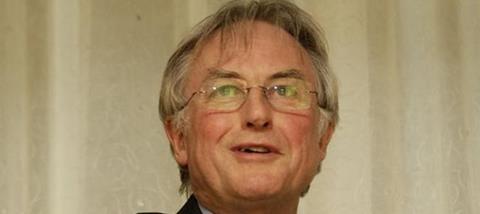
Truthfully, I found the book a waste of my time as it afforded me no cogent arguments concerning the existence or non-existence of God. In fact, not only was Dawkins disrespectful of opinions other than his own, I found his statements about Jesus to be so ill-informed (and, mind you, I was no fount of scholarly information myself) that I resolved to actually learn something about Jesus Christ.
Reading Dawkins challenged me to go beyond my comfort zone and honestly confront the issues holding me back from a full commitment to faith. My sense of The God Delusion is that it is written as a testimony to Dawkins’ belief system (which I call fundamentalist atheism) and that the author cherry picks convenient quotes to bolster his opinion that esteemed scientists (such as Einstein) couldn’t possibly be ignorant enough to actually believe in a supernatural God, no matter what they may have said to the contrary.
Anyone with any intelligence at all couldn’t possible believe in a supernatural God, according to Dawkins. He is preaching to the atheist choir and evidently they loved the book based on their many five-star recommendations of it. But in that sense, Dawkins is no different than the many Christian authors who write in a similar manner. There is a pre-judgment that whoever disagrees with the premise of the book is, essentially, an idiot! Well, I don’t like to be called an idiot.
I realised I was no better than Dawkins. I was basing my faith on inner feelings and a perceived sense of my world, having never thought much deeper than the surface level. I went in search of some answers. Who was this mysterious figure of Jesus? Obviously, he was a man who rocked first century Jerusalem to its very core. Something of great significance happened back then. There had been numerous other prophets up until that time. If any religion would emerge as victorious on the worldwide stage, why would one ever imagine it to be Christianity? Surely it would have been Judaism or perhaps some iteration of the Roman gods. After all, Jesus was a poor craftsman/carpenter, with a rag tag bunch of followers. They certainly were not literate, powerful or politically connected men. And that was the beginning of the last leg of my journey to conversion to Catholicism.
If anyone had told me five years earlier that I would one day become Catholic, I honestly would have laughed in their face
In reading to refute Dawkins as well as educate myself and find answers to questions, I discovered the God-man Jesus Christ. Not only did the Catholic view resonate with me emotionally, but perhaps more importantly for me, it was intellectually honest. The Protestant view seemed watered down (maybe part of the reason I left the Lutheran Church to pursue exploration of Judaism).
But my question remained: How did the first century world view Jesus Christ? My search ultimately led me to Pope Benedict XVI’s Jesus of Nazareth and that closed the loop. Not an easy read, but it made sense. The essential belief of the Catholic Church – belief in a supernatural God who condescended to come to Earth in the form of Jesus Christ the God-man to atone for our sins in fulfillment of salvation history – cannot be proven by the scientific method (hence Dawkins’ atheism, although one has to wonder how he can justify proof of God’s non-existence).
Yet, in all honesty, I believe one has to give credence to the paradigmatic lens that has been adopted since the Scientific Revolution of the 18th century for discrediting belief in a supernatural God as unscientific because unprovable by scientific method and therefore false.
I choose to believe in a supernatural God and his son Jesus. I believe in miracles. I believe that, while science has many valuable insights to offer us, it is not the final word. I believe that some things are beyond our understanding, certainly now, and perhaps forever. I believe that God is great and that man, created in his image and with free will, has made wonderful discoveries about the natural world that we inhabit. I choose to believe in God and that he is no delusion, nor am I delusional.
If anyone had told me five years earlier that I would one day become Catholic, I honestly would have laughed in their face and bet all my worldly possessions and then some that such a thing would never happen. Was I ever wrong! And had my stepdaughter not recommended that I read The God Delusion I might never have gone on to pursue my own honest and intellectual search for the meaning of my life. I would still be lost and wandering with only a convenient and partial faith.
Debra Babarsky is a licensed professional counselor engaged in private practice for the past 22 years. She is a graduate of Holy Apostles College and Seminary with a Bioethics concentration, she teaches the undergraduate Intro to Bioethics class and is also a teaching assistant for graduate level Dogmatic Theology classes.
This blog was first published on jamesbishopblog.wordpress.com and is used with permission
Click here to request a free copy of Premier Christianity magazine





























